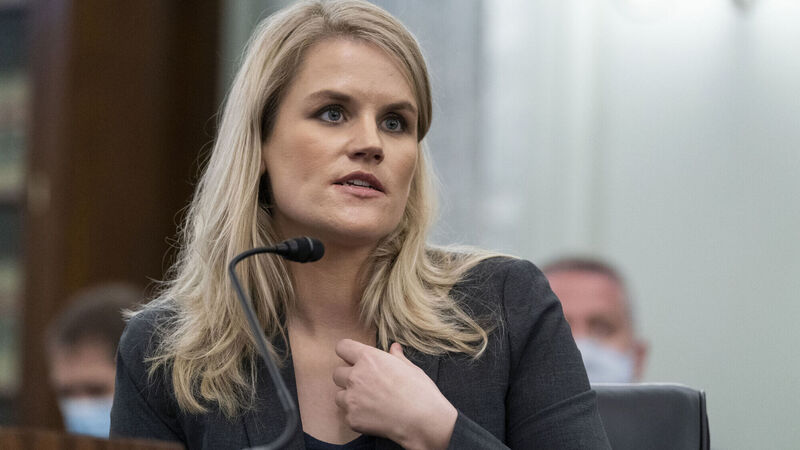Facebook whistleblower says Irish Government should order independent review of Data Protection Commission

Last year, former Facebook data scientist Frances Haugen leaked internal company documents to the media and claimed Facebook was guilty of putting profits ahead of public safety. File picture: AP /Alex Brandon
The Government should order an independent review of the Data Protection Commission, a Facebook whistleblower has told an Oireachtas committee.
Frances Haugen was speaking to the Oireachtas Tourism, Culture, Arts, Sport and Media Committee about online misinformation and digital literacy on Wednesday and said that Ireland had the choice between promoting "facts" or "the interests of a billion-dollar profit machine".










